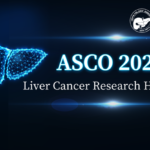
Editor's Note: The CHAARTED study demonstrated that early use of chemotherapy combined with androgen deprivation therapy (ADT+docetaxel) significantly improves survival for most patients with metastatic hormone-sensitive prostate cancer (HSPC). However, most patients eventually develop castration-resistant prostate cancer (CRPC) and require additional systemic treatment. At the 2024 American Society of Clinical Oncology (ASCO) Annual Meeting, Professor Christos Kyriakopoulos from the University of Wisconsin Carbone Cancer Center shared the results of the CHAARTED2 clinical study on cabazitaxel combined with abiraterone for metastatic prostate cancer. "Oncology Frontier" interviewed Professor Christos Kyriakopoulos to discuss treatment options for CRPC.1. Current Treatment Strategies for mCRPC
Oncology Frontier: What are the current treatment strategies for patients with metastatic castration-resistant prostate cancer (mCRPC)?
Professor Christos Kyriakopoulos: The treatment for mCRPC varies depending on what the patient has received for castration-sensitive disease. For those who have already received chemotherapy plus abiraterone, darolutamide, or other second-generation AR inhibitors, options for second-line treatment include cabazitaxel or lutetium, both of which have shown significant activity in this setting. For patients with specific mutations, such as BRCA1 or BRCA2, PARP inhibitors are an excellent choice. Additionally, for those with microsatellite instability, pembrolizumab is an option.
2. Treatment for Patients Without Prior Chemotherapy in the Castration-Sensitive Setting
Oncology Frontier: How do you approach treatment for patients who have not received chemotherapy in the castration-sensitive setting?
Professor Christos Kyriakopoulos: For these patients, we often consider chemotherapy, depending on their overall condition and symptoms. Although lutetium is not currently approved in the pre-chemotherapy setting, it can be considered for very select patients who are not candidates for chemotherapy. PARP inhibitors also remain a viable option based on the patient’s molecular profile. Other treatments like radium-223 and sipuleucel-T are also available.
3. CHAARTED2 Study Results: Cabazitaxel and Abiraterone Combination
Oncology Frontier: You announced the results of the CHAARTED2 study at the ASCO annual meeting. Is the combination of cabazitaxel and abiraterone better than abiraterone alone?
Professor Christos Kyriakopoulos: The CHAARTED2 study, conducted by ECOG-ACRIN in collaboration with various cooperative groups under the leadership of the NCI, showed that the combination of cabazitaxel with abiraterone significantly prolonged progression-free survival by five months compared to abiraterone alone (14.9 months [95% CI 9.9-18.6] vs. 9.9 months [95% CI, 7.0-12.6], P = 0.049; HR 0.73, 80% CI 0.59-0.90). However, this study was designed in a different era, and its applicability to current practice might be limited as most patients now have been exposed to second-generation AR inhibitors by the time they develop castration-resistant disease. Despite this, the study’s positive outcome is noteworthy.
4. Safety of Cabazitaxel Combined with Abiraterone
Oncology Frontier: How safe is cabazitaxel with abiraterone?
Professor Christos Kyriakopoulos: Overall, the combination of cabazitaxel with abiraterone was safe. We did observe higher degrees of cytopenias, which is expected with chemotherapy use. However, no new safety signals were detected. Importantly, the majority of patients were able to complete all six cycles of chemotherapy as planned, although about 65% required treatment modifications.
5. Future Research Plans
Oncology Frontier: What research do you plan to conduct in the future to further screen the people who will benefit?
Professor Christos Kyriakopoulos: We included two correlative studies within CHAARTED2: an analysis of circulating tumor cells and imaging biomarkers using sodium fluoride PET imaging. While these results were not presented at ASCO 2024, they are part of ongoing work, and we hope to present these findings at future meetings. Additionally, we collected plasma samples at three different time points and plan to conduct further analyses with these samples.
Christos Kyriakopoulos, MD, CHS Associate Professor
- University of Wisconsin Carbone Cancer Center
- Dr. Christos Kyriakopoulos is a faculty member in the Hematology, Medical Oncology, and Palliative Care Department. He is a medical oncologist specializing in genitourinary cancers. Dr. Kyriakopoulos is a member of the American College of Physicians, American Society of Clinical Oncology, and European Society for Medical Oncology. He received the Mark and Debbie Attanasio Prostate Cancer Foundation Young Investigator Award. Dr. Kyriakopoulos is a member of the National Comprehensive Cancer Network Kidney Cancer Panel and the ECOG-ACRIN Genitourinary Committee. His clinical interests include genitourinary cancers (including prostate cancer), and his research focuses on clinical trials of chemotherapy drugs for prostate cancer.

Christos Kyriakopoulos, MD, CHS Associate Professor
- University of Wisconsin Carbone Cancer Center
- Dr. Christos Kyriakopoulos is a faculty member in the Hematology, Medical Oncology, and Palliative Care Department. He is a medical oncologist specializing in genitourinary cancers. Dr. Kyriakopoulos is a member of the American College of Physicians, American Society of Clinical Oncology, and European Society for Medical Oncology. He received the Mark and Debbie Attanasio Prostate Cancer Foundation Young Investigator Award. Dr. Kyriakopoulos is a member of the National Comprehensive Cancer Network Kidney Cancer Panel and the ECOG-ACRIN Genitourinary Committee. His clinical interests include genitourinary cancers (including prostate cancer), and his research focuses on clinical trials of chemotherapy drugs for prostate cancer.


